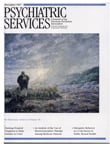With the greater acceptance of adult attention-deficit hyperactivity disorder (ADHD) as a valid clinical diagnosis, this disorder has been increasingly recognized among substance abusers seeking treatment. Because adult ADHD occurs in a substantial minority of substance abusers—from 10 to 30 percent—the question arises of whether individuals identified as having adult ADHD and substance abuse would benefit from targeted treatment interventions.
Cocaine abusers with childhood histories of ADHD are more likely to use cocaine at an earlier age and to have more exposure to treatment, but they do less well in treatment (
1). Furthermore, Dansereau and associates (
2) have found that methadone maintenance patients with "poor attention" do less well in treatment. Thus it seems reasonable to conclude that improving an individual's difficulties with inattention, hyperactivity, or impulsivity will increase that person's likelihood of succeeding in substance abuse treatment.
Treatment guidelines
Several questions have yet to be answered. Do stimulants work more effectively than other medications for substance abusers with ADHD? Do the benefits of stimulant medications outweigh the risks of possible abuse? The literature on childhood ADHD suggests that stimulants are more likely to be effective in treating ADHD symptoms than other medications; antidepressants are often considered a second-line approach. However, this may not be the case with adult substance abusers. The choice of medication needs to be based on the specific clinical situation.
Because desipramine and bupropion pose less risk of abuse by patients and by their family members or friends, these medications should be considered first-line approaches for the treatment of adult substance abusers with ADHD.
More data exist about the safety of using desipramine for substance abusers in outpatient clinical settings than about the safety of using bupropion. Although both medications appear to be safe for use with substance abusers, these individuals often combine prescribed medication with drugs of abuse. Because an additive or synergistic risk of seizure may exist when bupropion is combined with cocaine or other drugs of abuse, this medication should be avoided or used cautiously with substance abusers who have a history of seizures. Of note, dosages of desipramine and bupropion used to treat depression appear to be similarly effective for adult ADHD.
For individuals who do not respond to an antidepressant, methylphenidate, particularly the sustained-release preparation, may be an effective alternative if prescribed in a well-controlled manner. There are several ways to monitor a patient's use of stimulants and thus limit the potential for abuse. First, the physician should limit the number of pills given with each prescription and keep a log of the pills prescribed. Generally, during the first few weeks of treatment, no more than a one-week supply should be given. Second, frequent patient contact is important because it allows the physician to review whether the stimulant medication is benefiting the patient and also to look for any evidence of stimulant misuse or abuse.
A third way to limit the potential for abuse of stimulants is by documenting improvements, preferably by using established instruments such as the Adult Behavior Checklist (
17). If improvements are not noted after an adequate trial of medication (four weeks), then continued use is unlikely to help. Fourth, urine toxicology tests should be routinely done during the first four weeks of medication treatment and then done randomly, about once a month, after that. Patients should also be asked at each visit about their alcohol and drug use. If they do not substantially reduce or cease drug use, then stimulant medications should be discontinued, and the patient should be referred for more intensive substance abuse treatment.
It is critical that the patient safeguard the stimulant medication. Although the patient may not abuse the medication, other family members, particularly adolescents, may do so. In addition, it is preferable if the medication can be given in the context of family support and monitoring.
Finally, the use of a sustained-release preparation of methylphenidate might be preferable to the standard formulation because of its slower onset of action, which inherently reduces its abuse potential, and because it can be administered twice a day rather than several times a day. Although clinical lore suggests that the sustained-release preparation is less clinically effective than the standard preparation, this conclusion may be related to inadequate dosing. In our experience, dosages of up to 1 mg per day per kg of body weight are often necessary to effectively treat adult ADHD and substance abuse; however, inadequate dosages, similar to those frequently prescribed for children, are sometimes given to adults.
For individuals with adult ADHD who do not use drugs or alcohol, it is less clear what should be the first-line medication treatment. Some might suggest that antidepressants are still the preferred treatment because they have a lower abuse potential. We would agree that if an individual has a depressive disorder along with symptoms of ADHD, then desipramine or bupropion are good first choices, However, because little evidence exists that methylphenidate increases craving for other drugs and because it has been the most widely used and most effective medication for childhood and adult ADHD, we would recommend its use, with the precautions described above, as a first-line treatment for individuals with no ongoing substance use disorder.
Although these guidelines have focused on pharmacologic interventions, simply providing medication without other treatment interventions is unlikely to change ingrained drug-taking behavior. Other strategies such as 12-step models, contingency management, and relapse prevention have been shown to be effective for treating substance abuse. These approaches, in conjunction with one of the medications mentioned above, are the best current methods for treating comorbid ADHD and substance abuse.
However, because many questions remain, these guidelines should be considered preliminary, and they need to be tempered by the clinical situation and the physician's ability to adequately monitor the patient's response to treatment.

